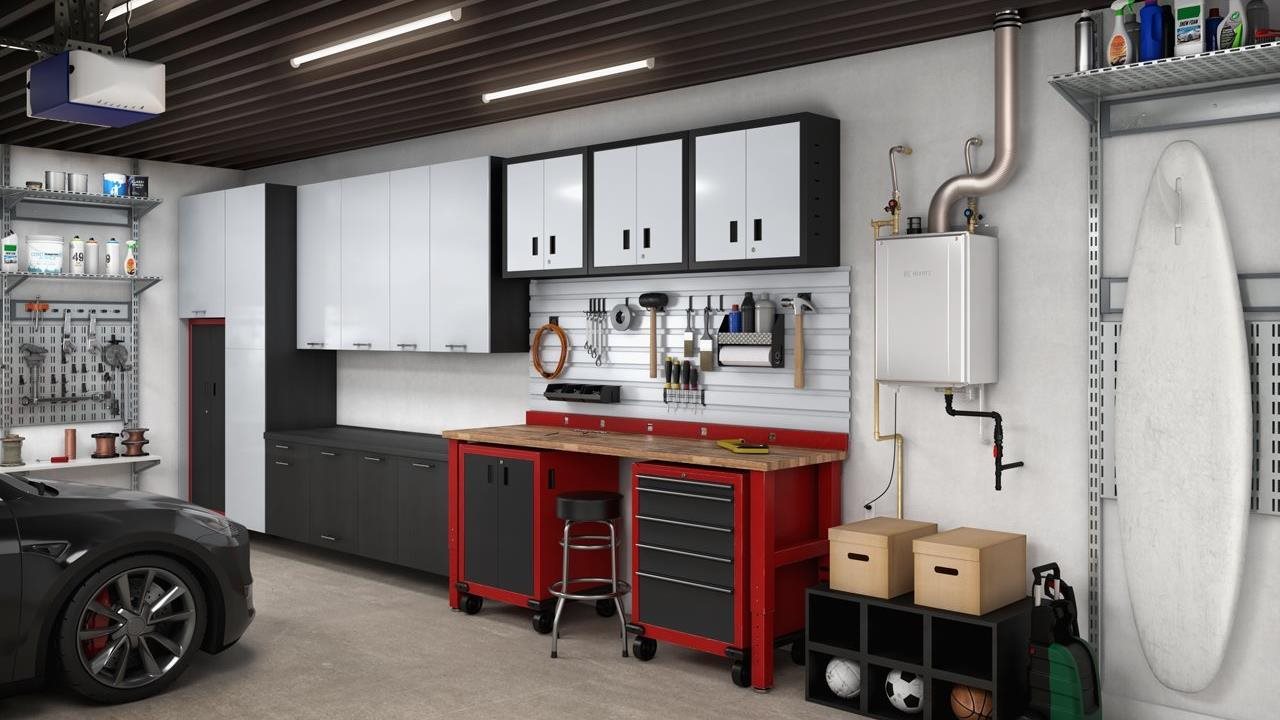2023-08-29T05:01:00
(BPT) – Whether you’re taking a shower, cleaning the dishes or simply washing your hands, access to hot water is considered an essential in American homes. When you have to wait too long for that soothing warm flow, you may start to wonder if it’s time to upgrade your water heater. And worse, if access to hot water suddenly disappears, you may be forced to replace it quickly — and deal with chilly bathing in the interim.
A new water heater provides a fast fix to your problems, but it’s important not to make a decision in haste that impacts your comfort and operating costs for years to come. By educating yourself now about the difference between two main types of modern water heaters — tank and tankless — you’ll be prepared to make the best decision for you and your home whenever the time comes.
Jason Fleming, Executive Vice President at Noritz America, is an expert on water heaters and understands this can be a difficult decision. He answers homeowners’ top questions about tank and tankless options.
Do tank or tankless water heaters cost more?
The cost advantages depend on whether you want a quick fix or a long-term investment. Tank heaters cost less up front but are expensive to run and wear out sooner. Tankless heaters cost more up front, but save you substantially on your monthly bills. Comparing a standard 50-gallon tank heater with an equivalent tankless (condensed gas-fired unit), the tankless unit can reduce energy costs by 60% or more. Plus, tankless lasts up to two times longer.
Key takeaway: Tankless saves more long-term.
Which option is most efficient?
Energy efficiency is one of the biggest perks homeowners want from a new water heater. A tank heater operates continuously. That means it’s running even when you’re asleep, heating water that sits in a holding tank, which is not energy efficient. Tankless heaters are designed to save energy because they only heat water on demand. It’s a smaller, compact system that flash-heats water when you need it and turns off as soon as you turn off the faucet. That equates to less energy use and lower utility bills.
Key takeaway: Heating unused water is like dumping money down the drain.
Which is the greener option?
Homeowners have a growing interest in a green home that is eco-friendly. Tankless water heaters work to reduce carbon emissions. They do this by using less energy to heat the water since it’s heated on demand rather than maintaining a full tank of heated water. Additionally, tankless models last longer, equating to a decrease in landfill waste.
Key takeaway: Tankless options are ideal for eco-friendly homes.
Which is harder to install?
Both types of water heaters should be installed by a qualified, licensed contractor. Traditional tank water heaters are large and may require multiple service technicians to move and navigate in a utility room. Tankless units are compact and ideal for small spaces, great for opening up an existing space and making it easier for professional installers to navigate. In fact, tankless water heaters are about the size of a carry-on suitcase.
Key takeaway: Tankless are small but mighty.
Which is more expensive to install?
Tank water heaters may cost slightly less to install, but recently installation costs on tankless heaters have come down. In particular, the EZ Series of high-efficiency, condensing tankless water heaters from Noritz America is designed to cut installation time and cost when replacing larger, storage tank-type units. And because they are far more energy-efficient, you can further save on installation costs through federal and state rebates.
Key takeaway: Smaller units can make installation easier and less costly.
Are there leak concerns with tank or tankless?
It’s an unhappy scenario familiar to many homeowners: coming home to water everywhere, leaking from a busted water heater. With a tank water heater, that can be 40, 50, even 60 or 100 gallons pooled up, causing significant damage to the property. With a tankless water heater, you no longer need to stress about this because the system does not store any water. Even if the heat exchanger should become damaged (a rare occurrence), the leaks would be measured in dribbles and drops — far from the massive headaches too often caused by a leaking tank heater.
Key takeaway: No holding tank means no catastrophic leaks — ever.
Do tank or tankless heaters provide more hot water?
Tank heaters pre-heat a limited amount of water in their tank. If you use up all the hot water in the tank, you run out until it refills and reheats. Tankless heaters heat up water as it’s needed — whenever you turn on the faucet or shower. They can bring a steady flow of water up to soothing temperatures in a matter of seconds and provide it indefinitely. Water pressure may be a concern with tankless heaters if multiple sources are pulling hot water at once, but proper sizing and recent technology have made this much less an issue than in the past.
Key takeaway: Modern tankless technology helps ensure an endless flow of hot water.
Everyone wants to be comfortable in their home and that includes reliable access to hot water. These guidelines help you make the right water heater decision whether you’re replacing a dated unit proactively or are faced with a last-minute replacement decision.


